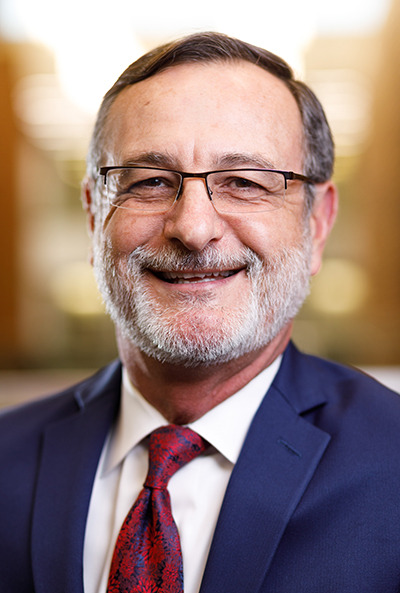Apologetics wasn’t working for me. I had studied under a premier evangelical apologist, but what I learned didn’t connect with people in the realm of my pastoral ministry. The apologetics were developed mostly for the debate arena and academy, so when I presented “traditional” apologetic arguments for the existence of God or evidence for the resurrection of Jesus Christ, the person on the street seemed unimpressed and unmoved. I thought it was just me, or perhaps them. If I were smarter, the apologetics I had been taught would work. If they weren’t so obtuse, they would get it.
Recently, I learned that there may be another way, an Augustinian way. My friend Josh Chatraw and I — both experienced in pastoral ministry — decided to take a deep dive into St. Augustine’s apologetic to see if we could find some help for our contemporary world.
St. Augustine was a bishop in North Africa who lived from 354 to 430 but whose influence casts a long shadow over Protestants (Luther was an Augustinian monk, and Calvin’s doctrine of grace relied heavily on Augustine), Catholics (St. Anselm, Thomas Aquinas, and Blaise Pascal advanced Augustine’s way), and secular philosophers (Martin Heidegger, Albert Camus, and Jacques Derrida all wrestled with the thought of St. Augustine). Pastor was his main vocation. He shepherded a flock during the tumultuous times after the fall of Rome and the resurgence of paganism in his Greco-Roman world, when Christianity was being accused of undermining the Roman Empire and pluralism was (re)grasping the imagination of the culture.
In response, he wrote one of the most significant apologetic works in church history: “The City of God.” This came after “Confessions” in which he detailed his defection from the Christian faith as a youth and his return to the faith as an adult.
From studying Augustine’s works, we discovered that effective apologetics must be pastoral and must have a vital connection to the local church. An apologist’s posture should resemble a shepherd, not a gunslinger. Today, an apologist should be more like a seasoned guide on the Appalachian Trail than a muscular boxer in the ring.
We also discovered two questions that were apologetic gamechangers: (1) What is a human? and (2) How do we know?
Jesus said the greatest commandment is to “Love God and love your neighbor.” Humans were made to love, but the problem is that our loves get disordered. We love money, achievement, and pleasure when we were designed to love God first and then love others in God’s love. Because of this, we end up feeling lost, fragmented, frustrated, alienated, and guilty. When doing apologetics, we must keep in mind that we are doing more than giving an answer to a rational question; we are offering the balm of the Gospel of Jesus Christ for healing and restoration to our truest humanity.
How do we know? Again, we are lovers given the capacity to think and reason in order to know God better and love our neighbor more. We are not the Tin Man; we have hearts. And we need to understand that when Scarecrow gets a brain, it is vitally connected to his heart. We think with our hearts and desires. That’s a feature of our humanity, not a defect.
Better results come from getting to the heart of the matter and asking questions like, “What do you love? What gives you joy? How is your approach to spirituality helping you to prepare for death? How did you come to believe in what you believe in? How are your beliefs working for you? What makes you so mad at Christianity and Christians?” Or, simply, “What are you seeking?” Honest, respectful, and empathetic questions open hearts and minds to the healing of the Gospel of Jesus Christ.
I’ve seen angry hearts and minds open themselves up to the veracity and rationality of the Gospel simply by being asked honest questions. One woman, who looked like your sweet aunt, attempted to alternatively shut herself off from me on a flight from Charlotte, N.C., to Lynchburg. She was a progressive with a capital “P” on her way to the mountains for a retreat with a spiritual guru. She found out I was from Liberty and proceeded to verbally attack me. At one point, she declared dismissively, “I shouldn’t even talk to you.” No, I didn’t hit back. Instead, I began asking her questions about herself. After a while, she opened up to me. She recounted how her parents had abused her and then took her to church. She had experienced a fake and false Christianity that had wounded her deeply. I felt for her and continued to share the love of Jesus with her. She softened even more, sharing with me other meaningful things from her life. Later, she wrote a blog about our encounter confessing that she was reconsidering her attitudes toward the things she had rejected outright.
Humans are lovers who think with their hearts. Humble lovers make the best apologists. That’s the Augustine way.
 Dr. Mark D. Allen is a Professor of Biblical and Theological Studies at Liberty’s John W. Rawlings School of Divinity. He holds a Ph.D. from the University of Notre Dame and has served as a pastor and church planter for over 20 years. He is the co-author of “The Augustine Way: Retrieving a Vision for the Church’s Apologetic Witness.”
Dr. Mark D. Allen is a Professor of Biblical and Theological Studies at Liberty’s John W. Rawlings School of Divinity. He holds a Ph.D. from the University of Notre Dame and has served as a pastor and church planter for over 20 years. He is the co-author of “The Augustine Way: Retrieving a Vision for the Church’s Apologetic Witness.”




